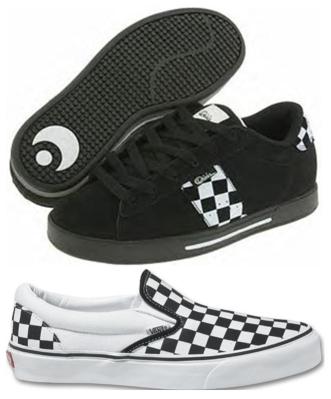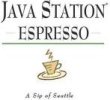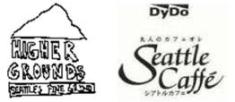Seattle Law Blogger Meetup Moved to January 15
Darn it, the date I had picked for the Seattle Law Blogger meetup conflicts with the Federal Bar Association of the Western District of Washington’s annual dinner. I also had heard rumblings of other potential conflicts. So, I am moving the event, executive-decision-style, to 6 p.m. on Tuesday, January 15. I hope this date works better. Heck, by January, two or three more Seattle law bloggers probably will have joined our ranks.
The suggested discussion points and description of the event are here. If you are a Seattle law blogger, I hope to see you there. Please mark your calendars, spread the word, and let me know if you can attend!
Court Denies California Board Sports' Summary Judgment Motion Against Vans
Plaintiff shoe maker California Board Sports, Inc., sued competing shoe maker Vans, Inc., for a declaration of non-infringement and non-dilution relating to Vans’ federal registration for the checkerboard pattern on its “Classic-Slip-On” shoe, or as I called them back in the day, “Spicoli Vans.”
Vans counterclaimed against CBSI for trademark infringement, unfair competition, and misappropriation under California law based on CBSI’s use of a checkerboard pattern on its “Serve Black” shoe.

Likelihood of confusion? Court says maybe
California Board Sports shoe (top) and Vans
CBSI moved for summary judgment on the grounds that Vans’ checkerboard pattern is generic or merely decorative; that the pattern is functional; that there is no likelihood of confusion; and that CBSI’s use of its checkerboard pattern is fair use.
On Nov. 6, the Southern District of California denied UBSI’s motion in its entirety. As to UBSI’s argument that the checkerboard pattern is generic or merely decorative, Judge Irma Gonzalez found that it did not serve the “What are you?” function that a generic mark serves. Instead, the court found that “a black and white checkerboard, while lacking in independent distinctiveness, falls into the class of designs eligible to acquire secondary meaning as a source-identifier.”
The court found that Vans had met its burden. Vans’ “evidence came in the form of a survey in which 45% of respondents — male purchasers of casual and athletic shoes who had purchased such shoes in the past three months or were likely to purchase such shoes in the next three months — misidentified a competitor’s slip-on shoe that copied the checkerboard pattern as a model coming from Defendant.” Even though UBSI objected as to the relevance of a study involving a shoe manufactured by a third party, the court found the study was relevant to the issue of whether consumers generally identify the checkerboard pattern with Vans.
As to functionality, the court found that while it was a close call, a genuine issue of material fact existed as to whether protection of the checkerboard pattern as a trademark would impose a “significant non-reputation related competitive disadvantage.” The court found that while the checkerboard is widely used in fashion generally, “Plaintiff has not connected the protection of the checkerboard pattern with competitive consequences by, for example, introducing evidence that consumers have an affinity for the checkerboard pattern unrelated to Defendant’s use of the pattern on its shoes.” Thus, the court concluded, the checkerboard pattern “acts as a source identifier” for Vans.
UBSI only made half-hearted arguments on likelihood of confusion. The court found: “Extended analysis on this issue is unnecessary. Even discounting the survey data as irrelevant for purposes of determining likelihood of confusion between Plaintiff’s and Defendant’s products, Plaintiff’s concession that many of the above factors favor Defendant suggests that a genuine issue of fact exists on the issue.”
Finally, as to fair use, UBSI essentially argued that because it did not choose its checkerboard pattern to deceive the public, its use is fair use. The court rejected the argument, finding “the principle of fair use and its protection of images in their primary descriptive sense has no relevance to the present controversy.”
The case cite is California Board Sports, Inc. v. Vans, Inc., No. 06-2365, 2007 WL 3276289 (S.D. Calif.).
Seattle: Home to Coffee (Trademarks)
 It’s true. We Seattlites fancy ourselves as living in the center of the coffee universe. After all, this is home to Starbucks, Seattle’s Best Coffee, and Tully’s, among others. Not surprisingly, the association between Seattle and coffee hasn’t been lost on coffee sellers.
It’s true. We Seattlites fancy ourselves as living in the center of the coffee universe. After all, this is home to Starbucks, Seattle’s Best Coffee, and Tully’s, among others. Not surprisingly, the association between Seattle and coffee hasn’t been lost on coffee sellers.
 A quick search of U.S. Patent and Trademark Office applications for trademark registration shows many remote coffee sellers want to cash in on Seattle’s coffee cache. For instance, just last week the Mississippi-based Seattle Drip Coffee Company obtained a registration for SEATTLE DRIP COFFEE COMPANY and Design for coffee and retail store services featuring gourmet coffee. In 2002, Michigan-based Kroger Co. registered SEATTLE CAFE ROAST and Design for coffee. Seattle Coffee Company, Inc., of Little Rock, Ark., similarly registered ESPRESSLY SEATTLE COFFEE CO. but lost it after Seattle’s Best Coffee Co. (of Seattle) petitioned to cancel the registration.
A quick search of U.S. Patent and Trademark Office applications for trademark registration shows many remote coffee sellers want to cash in on Seattle’s coffee cache. For instance, just last week the Mississippi-based Seattle Drip Coffee Company obtained a registration for SEATTLE DRIP COFFEE COMPANY and Design for coffee and retail store services featuring gourmet coffee. In 2002, Michigan-based Kroger Co. registered SEATTLE CAFE ROAST and Design for coffee. Seattle Coffee Company, Inc., of Little Rock, Ark., similarly registered ESPRESSLY SEATTLE COFFEE CO. but lost it after Seattle’s Best Coffee Co. (of Seattle) petitioned to cancel the registration.
 Another Arkansas company, William J. Giles Inc., applied in April to register BARISTA’S SEATTLE GRIND for restaurant services featuring coffee and desserts. Iowa’s Java Station, LLC, applied to register JAVA STATION ESPRESSO SIP OF SEATTLE and Design, which remains pending today. An individual residing in Dallas, Texas, also recently applied to register SEATTLE BROTHERS for coffee shops and coffee-house and snack-bar services.
Another Arkansas company, William J. Giles Inc., applied in April to register BARISTA’S SEATTLE GRIND for restaurant services featuring coffee and desserts. Iowa’s Java Station, LLC, applied to register JAVA STATION ESPRESSO SIP OF SEATTLE and Design, which remains pending today. An individual residing in Dallas, Texas, also recently applied to register SEATTLE BROTHERS for coffee shops and coffee-house and snack-bar services.
So what about 15 U.S.C. § 1052(e)(2), which bars registration of marks that are “primarily geographically descriptive”? Or Section 2(e)(3), which bars registration of marks that are “primarily geographically deceptively misdescriptive”? The former would seem to apply if the coffee being sold under the mark came from Seattle and the latter would seem to apply if the coffee did not. The Patent and Trademark Office appears to have cited these bars fairly frequently, though not in every case. In one office action, the PTO succinctly stated:
“Registration [of SEATTLE COFFEE COMPANY] is refused because the proposed mark consists of or comprises geographically deceptive and primarily geographically deceptively misdescriptive matter in relation to the identified goods and/or services. …
“The primary significance of the term ‘SEATTLE’ is geographic. The goods do not originate in this geographic location. The public is likely to believe that the applicant’s goods come from this place because Seattle is well-known for coffee. Furthermore, this belief would materially influence consumers to purchase the goods because of the high quality associated with Seattle coffee.”

The PTO’s enforcement of the bar for “primarily geographically deceptively misdescriptive” marks likely played a role in the abandonment of the following applications in connection with coffee:
- SEATTLE SUNRISE (by a Delaware individual),
- SEATTLE COFFEE COMPANY (by a North Carolina individual),
- A CUP OF SEATTLE (by a Colorado company),
- SIP OF SEATTLE (by a Tennessee company),
- HIGHER GROUNDS SEATTLE’S FINE GRIND and Design (By a Virginia company), and
- SEATTLE’S STYLE ESPRESSO (by a Pennsylvania company).
My favorite abandoned SEATTLE coffee application is for DYDO SEATTLE CAFFE and Design by DyDo Drinco, Inc., of Japan. Its mark contains Japanese characters that translate to “Adult’s Milk Coffee Seattle.”
But coffee isn’t just for adults anymore, as Mattel, Inc., illustrates. In 2000, it applied to register SEATTLE LATTE for “doll clothing and doll accessories.” For Seattle coffee drinkers of the future.
STL Grab Bag
Haute Diggity! On Nov. 13, the Fourth Circuit found doggie-toy maker Haute Diggity Dog, LLC did not dilute Louis Vuitton Malletier, S.A.’s famous LOUIS VUITTON trademark by selling chew toys called “Chewey Vuiton.” Rebecca Tushnet’s discussion here. This is an important decision under the now year-old Trademark Dilution Revision Act. It’s also a loss for the owners of famous trademarks. The International Trademark Association had filed an amicus brief in support of Louis Vuitton. The Fourth Circuit apparently was not persuaded.
Starbucks threatens Michigan’s Conga Coffee & Tea over the latter’s green concentric circle logo. Vegas Trademark Attorney reports on the dispute and chides STL for not beating him to the story.

Likelihood of confusion?
Imposters no more. In June, STL wrote about California’s proposed Truth in Music Advertising Act aimed at “imposter” bands. It’s now law. Starting Jan. 1, 2008, the Act generally will make it unlawful for “any person to advertise or conduct a live musical performance or production through the use of a false, deceptive, or misleading affiliation, connection, or association between a performing group and a recording group….” If your band’s called Sha Na Na, in California your name had better be Bowzer Bouman.
Acapulco Restaurant Dismisses Suit After Mexican Restaurant Changes Name
 In a relatively rare trademark filing for the Eastern District of Washington, Acapulco Restaurants, Inc., brought suit against the owners of the Sunnyside, Washington, Mexican restaurant known as “Acapulco Restaurant.” Plaintiff alleged Antonia and Maria Chavez and the other unknown owners of the restaurant infringed plaintiff’s registered trademarks ACAPULCO, ACAPULCO MEXICAN RESTAURANT, and ACAPULCO RESTAURANT Y MEXICAN CANTINA in connection with restaurant and cantina services. After defendants proved they had changed the name of their restaurant to “El Faro,” plaintiff filed a notice of dismissal, which Judge Robert Whaley effected today.
In a relatively rare trademark filing for the Eastern District of Washington, Acapulco Restaurants, Inc., brought suit against the owners of the Sunnyside, Washington, Mexican restaurant known as “Acapulco Restaurant.” Plaintiff alleged Antonia and Maria Chavez and the other unknown owners of the restaurant infringed plaintiff’s registered trademarks ACAPULCO, ACAPULCO MEXICAN RESTAURANT, and ACAPULCO RESTAURANT Y MEXICAN CANTINA in connection with restaurant and cantina services. After defendants proved they had changed the name of their restaurant to “El Faro,” plaintiff filed a notice of dismissal, which Judge Robert Whaley effected today.
The case cite is Acapulco Restaurants, Inc. v. Chavez, No. 07-3091 (E.D. Wash.).
Full disclosure: STL’s publisher represented the plaintiff in the case.